Turkey Erdogan: Women rise up over withdrawal from Istanbul Convention
- Published
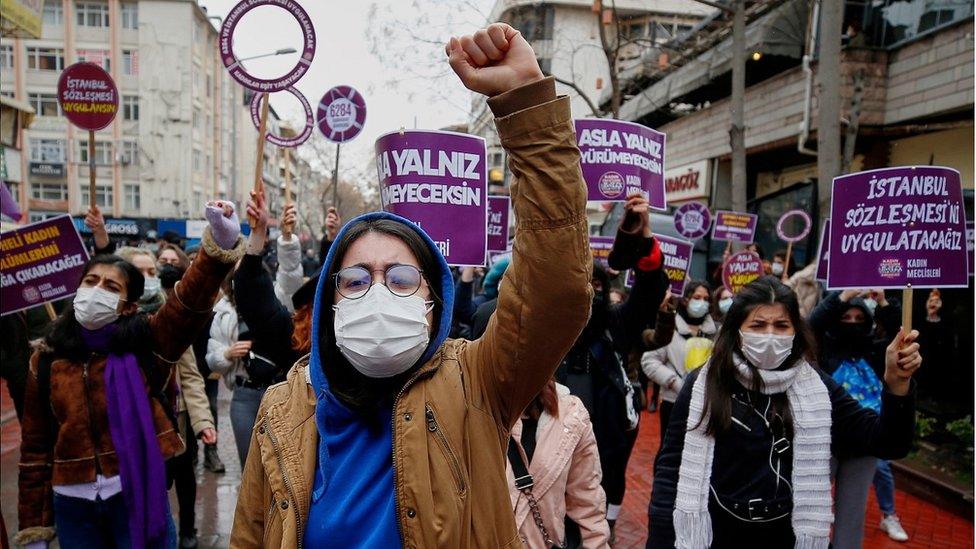
Women rallied in Ankara against Mr Erdogan's decree on 20 March
It has been a tumultuous and anxious week for women in Turkey.
When President Recep Tayyip Erdogan issued a decree at midnight last Friday, annulling Turkey's ratification of the Istanbul Convention on violence against women, women poured on to the streets of Turkish cities to protest. Further demonstrations are planned.
The convention is a legally-binding Council of Europe treaty, external, covering domestic violence and seeking to end legal impunity for perpetrators. It covers 34 European countries and took effect in 2014.
Among the protesters' slogans were "Istanbul Convention saves lives" and "We don't accept one man's decision".
Women's rights activists, lawyers and opposition politicians have denounced Mr Erdogan's decree, insisting he cannot legally take Turkey out of an international convention ratified by parliament.
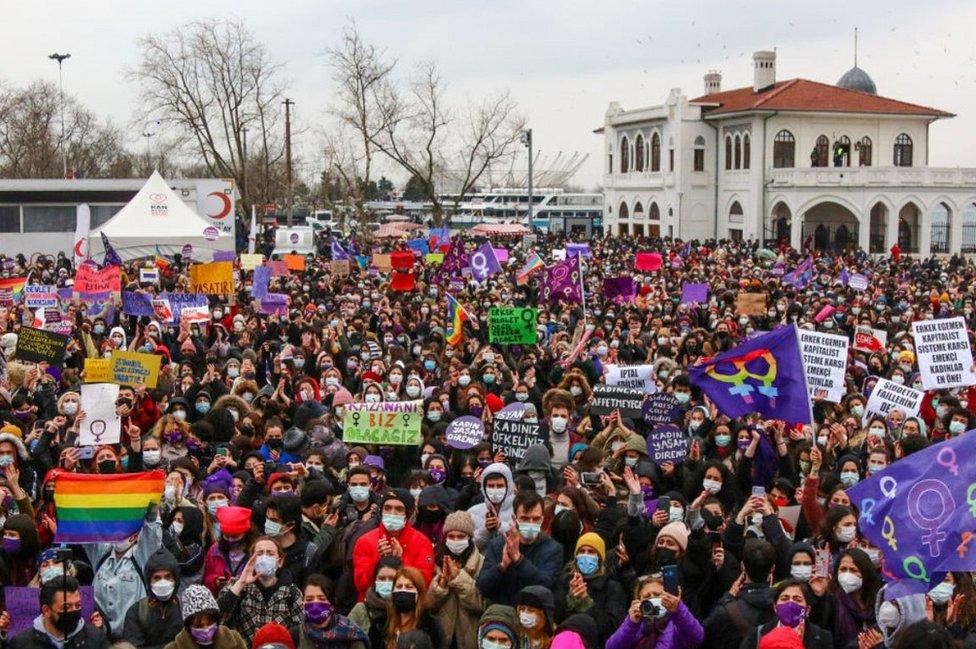
There was also a big rally against the decree in Istanbul last Saturday and more are planned
Women are killed in Turkey every day and critics argue that this move puts women in even greater danger.
According to Turkey's We Will Stop Femicide Platform, external, at least 300 women were murdered in 2020, mostly by their partners, and 171 more women were found dead under suspicious circumstances.
Turkey was the first state to ratify the convention, by a unanimous vote in the parliament in 2012, and it was actively supported by the Women and Democracy Association (Kadem), whose vice-chair is President Erdogan's daughter.
He even praised the convention at one point as evidence that Turkey was a leader in gender equality.
Why scrap it?
However, Mr Erdogan has recently become more vulnerable politically. He has bowed to the demands of hardliners, both within his conservative AK party and in the Islamist opposition Felicity Party, in return for their support.
Opponents of the convention have complained it encourages divorce and undermines traditional family values. They find it especially problematic that signatories have to protect victims from discrimination regardless of their sexual orientation or gender identity. Their worry is that this single clause may lead to gay marriage.
President Erdogan's spokesperson, Fahrettin Altun, argued that the Istanbul Convention's original intention of promoting women's rights had been "hijacked by a group of people attempting to normalise homosexuality" and that it was incompatible with Turkey's social and family values.
The Islamist-rooted AK party has increasingly voiced anti-LGBT+ sentiments. Most prominent so far has been a tweet from Interior Minister Suleyman Soylu calling LGBT+ individuals "perverted" - a comment that prompted a Twitter warning flag.
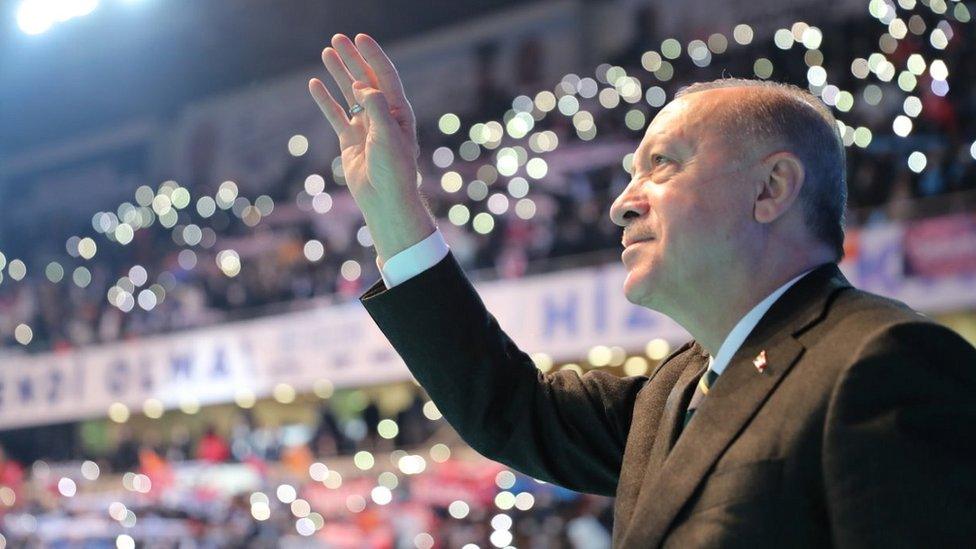
President Erdogan addressed an AKP congress this week
To quell the critics, senior AKP members announced they would deal with domestic violence through judicial reform and an Ankara Convention that would claim its power from "traditions and customs".
In response women in pro-government circles and elsewhere have taken to social media to criticised the reference to "customs and traditions", which in their view designates women as second-class citizens.
For many women the scrapping of the convention is a huge disappointment. They were expecting the judiciary and police to be instrumental in cracking down on violence against women and LGBT+ people.
Turkey's hidden domestic abuse: A survivor's story
With or without the convention they want the judiciary to shed its reluctance to prosecute crimes against women, and impose adequate punishment as a deterrent.
There have been mixed messages from the Kadem women's association, which has praised the convention as an "important initiative against domestic violence", but concluded that the decision to scrap it was a result of "societal tension" caused by it.
More pro-Erdogan moves
It is not just women who have been affected by midnight presidential decrees in recent days.
Mr Erdogan also sacked Central Bank Governor Naci Agbal, who had won praise in the markets for aggressively raising the main interest rate to 19% to combat inflation.
The president has replaced him with Sahap Kavcioglu, a man whose ideas on low interest rates are more in tune with his own.
The change further weakened the Turkish lira. When asked to comment, a senior member of the president's team said "since it is Erdogan's decision, only he has the rationale".
Whatever the rationale may be, there is a sense that the man who has dominated Turkey since 2003 is seeking to consolidate his conservative support base as opinion polls signal discontent among voters.
State prosecutors in Turkey are also moving to ban the country's third-largest party, the Kurdish-rooted Peoples' Democratic Party (HDP). Their move is seen as emanating from the demands of the far-right Nationalist Movement Party (MHP), an ally of the president's AKP.
Hardliners do appear to have gained more influence in the AKP, as it seeks to energise its core with party congresses ahead of 2023 elections.
In an era marked by coronavirus, unemployment and economic fragility, all these moves seem to be related. But as he seeks to shore up his position Mr Erdogan is also taking a risk.
Related topics
- Published21 March 2021
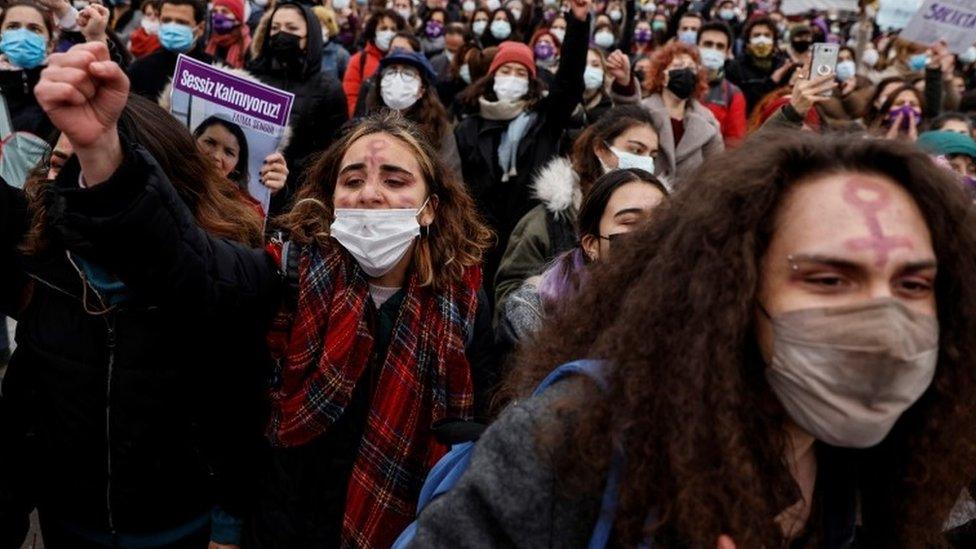
- Published24 March
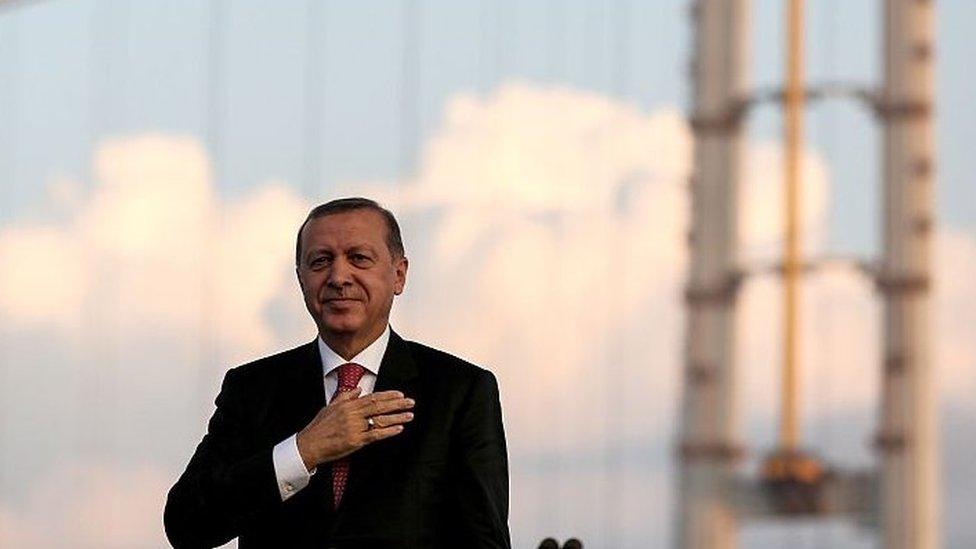
- Published5 December 2019
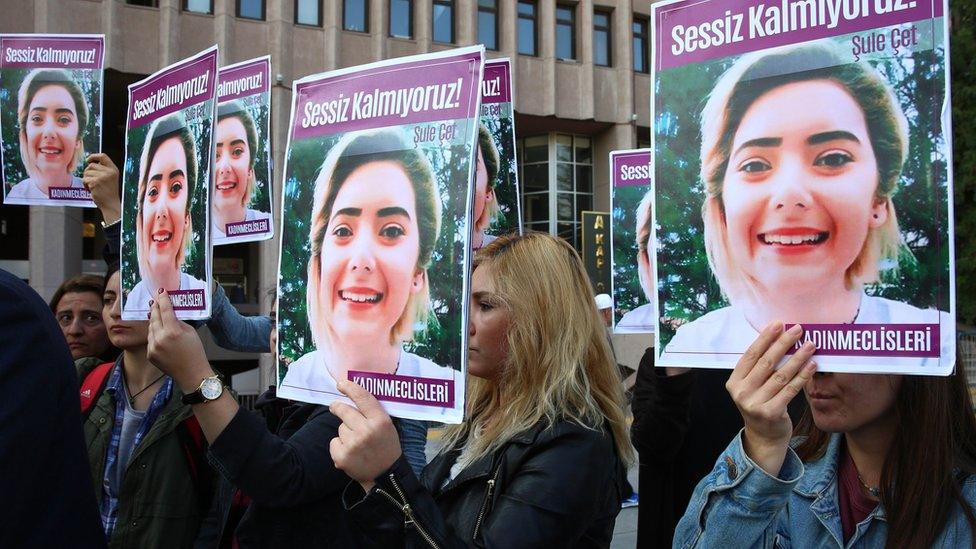
- Published30 July 2020
